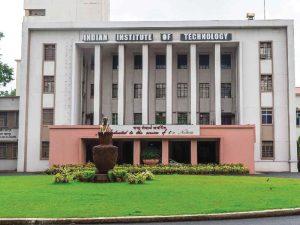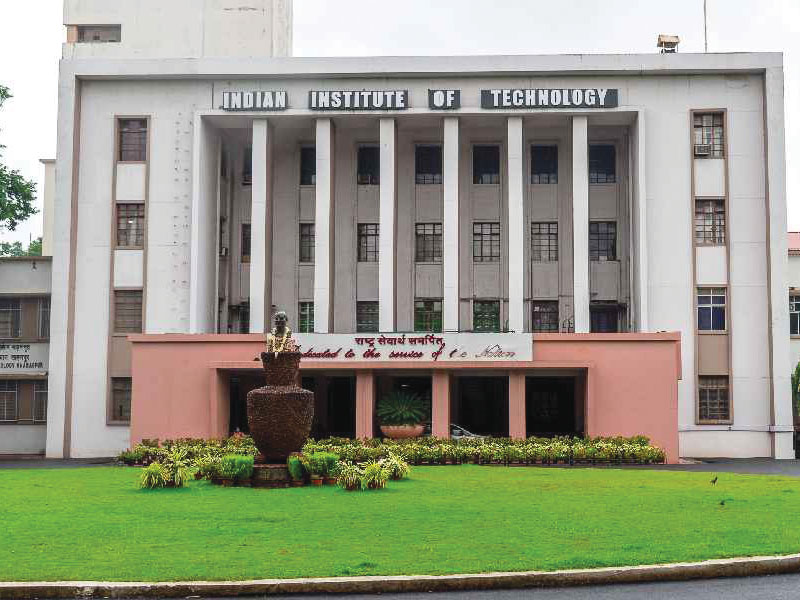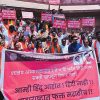No products in the cart.
Delhi: Apex court intervention
Autar Nehru (Delhi)

IIT-Kharagpur main block: student suicides rash. Inset: Prof. Raj Kachroo
The rising number of student suicides in the country’s showpiece higher education institutions (HEIs) has prompted intervention by the Supreme Court of India.
On March 24, while adjudicating the case of Amit Kumar & Ors. Vs Union of India & Ors, a two-judge bench of the apex court ordered constitution of a National Task Force (NTF) to discuss and deliberate issues related to mental health of children and youth, and particularly ways and means to prevent suicides in education institutions. The 10-member NTF headed by former Supreme Court judge, Justice S. Ravindra Bhat has been directed to propose necessary reforms to existing legal and institutional frameworks to ensure stronger enforcement of extant laws, institutional accountability and prevention of student suicides.
Visiting this issue again on July 25, while hearing Sukdeb Saha Vs. State of Andhra Pradesh & Ors, a two-judge bench issued binding guidelines for all education institutions to adopt and implement a uniform mental health policy for student well-being. Invoking Article 141 of the Constitution which affirms the right of the apex court to prescribe new laws, the Supreme Court listed 15 binding guidelines for education institutions countrywide: “These guidelines shall be read as complementary to the ongoing work of the National Task Force and would inform and assist the National Task Force in the development of a more comprehensive and inclusive framework,” said the judges.
The Supreme Court’s activism on this issue is warranted. Between 2019 and 2023, 98 student suicides were reported in Central government HEIs with 11 reported in showcase IITs (Indian Institutes of Technology) in 2023-23 and 122 in medical colleges. In the past one year, four student suicides have been reported in IIT-Kharagpur.
Meanwhile the rising incidence of student suicides provoked a discussion in Parliament. Commenting on the issue on July 30, Dr. Sukanta Majumdar, Union minister of state for education said: “Department of Higher Education has initiated an integrated approach for promoting positive mental health, resilience, and wellbeing under the Malaviya Mission Teacher Training Programme. It comprises online and in-person sessions, visits to institutions with innovative mental health practices, and an Annual National Wellbeing Conclave. The goal is to empower faculty to address student mental health concerns for early intervention.”
However, according to Prof. Raj Kachroo, former professor of water & environmental engineering at the National University of Ireland and founder of Amanmovement.Org, whose sustained efforts to eradicate ragging in higher ed institutions following the tragic death of his son Aman who was bullied at Dr. Rajendra Prasad Medical College, Tanda (Himachal Pradesh) in 2009, normalisation of institutional and peer harassment is clouding the narrative around student distress.
“For every suicide, there are thousands below threshold who suffer in silence, but we fail to see it as a symptom of a larger problem that our students are confronted with. Most people view ragging as a kind of human violation while not paying attention to the fact that constant harassment and humiliation also kills the creativity and ingenuity of young minds. The plain truth is that student suicides are the second highest after housewives, who are forced by patriarchy and gender discrimination to end their lives,” says Kachroo, whose sustained anti-ragging campaign has reduced ragging deaths from an estimated 40 percent in 2009 to less than 5 percent in 2020.
However after 2022, the Amanmovement.Org was stripped of its role by a “corrupt bureaucracy” which diluted the statutory norms set by the Supreme Court and inserted a tendering process for running students’ helplines and allied services. “This has resurrected the ragging menace in HEIs,” says Kachroo, who has filed a petition in the Delhi high court praying for an injunction to restore the anti-ragging mechanism of the Amanmovement.Org.
“It’s imperative to empower students to avail the protection available under law. A greater degree of official and public sensitivity towards this issue is required,” says Prof. Kachroo.
Meanwhile the report of the ten-member NTF which will address the rising incidence of student self-harm and suicides — scheduled to be ready by next March — is awaited.
Also Read: Delhi govt to regulate fee hikes in all private schools
Post Views: 78
















Add comment